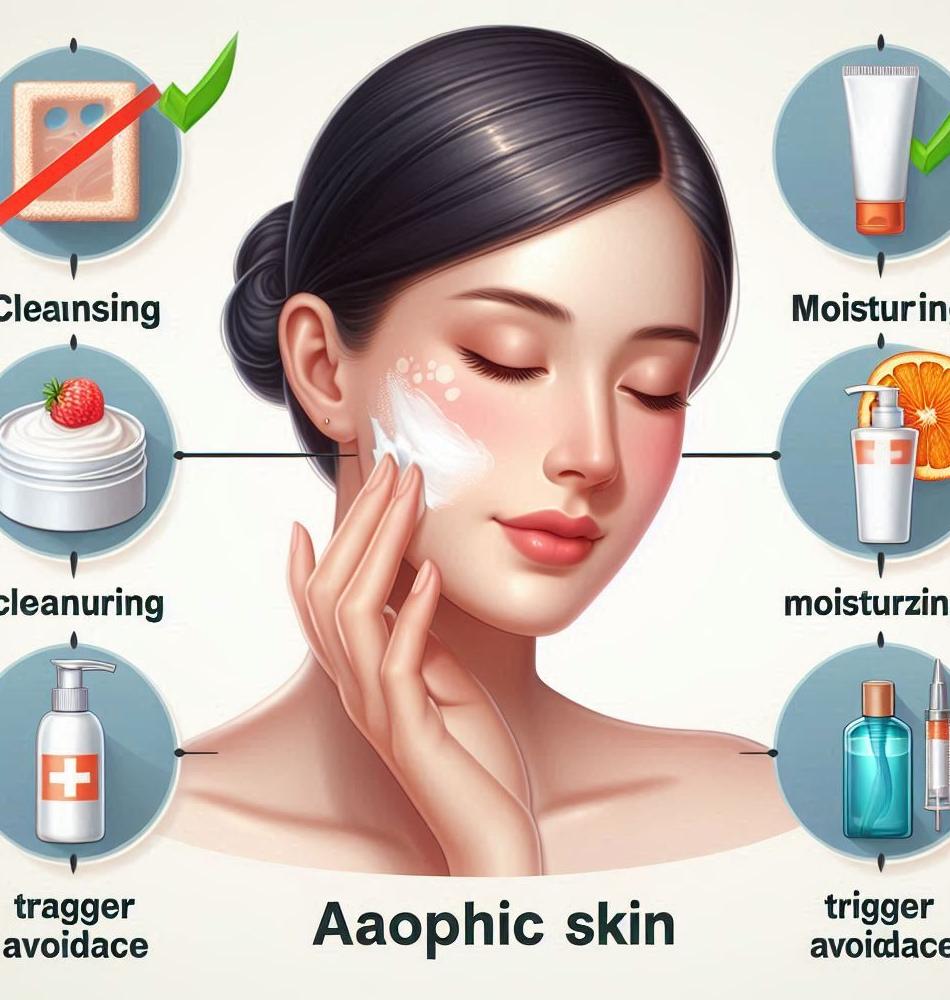Dive deep into the world of atopic skin, exploring its definition, causes, symptoms, management, and valuable tips to cope with the condition successfully.
Are you feeling confused about atopic skin? You’re not alone! This term pops up often in discussions about skin health and conditions. It might seem daunting, but understanding what atopic skin means can empower you to manage it better. In this article, we’ll delve into the world of atopic skin, covering essential aspects like its definition, symptoms, causes, and how to take care of it. So grab a cup of tea and let’s dive in!
What is Atopic Skin? 🌼
Atopic skin refers to skin that is prone to developing atopic dermatitis, commonly known as eczema. This condition is a long-lasting (chronic) skin disorder characterized by dry, itchy, and inflamed skin. Atopic skin occurs when the skin's barrier function is compromised, leading to an inability to retain moisture effectively. As a result, individuals may experience persistent itchiness, redness, and discomfort.
Understanding Symptoms of Atopic Skin 🌈
Recognizing the symptoms of atopic skin is crucial for effective management. Here are some common symptoms to look out for:
- Dry patches of skin
- Intense itching, particularly at night
- Red or brownish-gray patches
- Thickened, cracked, or scaly skin
- Small, raised bumps that may leak fluid when scratched
- Sensitive skin that may react to different irritants
The Emotional Impact of Atopic Skin ❤️
Living with atopic skin can take a toll on mental health as well. Many individuals experience feelings of embarrassment or self-consciousness due to the visible nature of the condition. It's important to acknowledge and address the emotional challenges that may arise.
What Causes Atopic Skin? 🧐
Understanding the root causes of atopic skin can help in prevention and management. While the exact cause of atopic dermatitis remains unknown, there are several factors that may contribute to its development:
Genetic Predisposition 👨👩👧
Atopy often runs in families. If there is a history of asthma, hay fever, or eczema in your family, you may have a higher likelihood of developing atopic skin.
Environmental Triggers 🌪️
Various environmental factors can exacerbate the symptoms of atopic skin:
- Cold weather
- Low humidity
- Exposure to allergens such as pollen, pet dander, and dust mites
- Skin irritants, including certain fabrics, soaps, or perfumes
Dietary Influences 🍽️
Some individuals notice that their skin condition worsens with certain dietary choices. Common culprits include:
- Dairy products
- Gluten
- Nuts
- Eggs
Managing Atopic Skin 🛡️
Though there is no cure for atopic skin, effective management techniques can significantly improve your quality of life. Here are some strategies you can consider:
Hydration and Moisturization 💧
Keeping your skin hydrated is essential. Here are some steps to follow:
- Use fragrance-free moisturizers multiple times a day, especially after bathing.
- Consider thicker creams or ointments that better lock in moisture.
- Avoid hot showers, as they can strip skin moisture. Opt for lukewarm water instead.
Topical Treatments 🧴
In cases where moisturization isn’t enough, dermatologists may recommend topical corticosteroids or calcineurin inhibitors to help reduce inflammation.
Medications 💊
If your atopic skin is severe, your doctor may prescribe oral medications or newer treatment options such as biologics, which target specific pathways in the inflammatory process.
Tips for Coping with Atopic Skin 🌟
Coping with atopic skin may require a multi-faceted approach:
- Wear soft, breathable fabrics to minimize irritation.
- Avoid scratching, which can exacerbate the condition.
- Identify and avoid triggers, keeping a diary if necessary.
- Practice stress management techniques, as stress can flare up symptoms.
Establishing a Skincare Routine 🛁
Having a consistent skincare routine can help you manage atopic skin effectively:
- Cleanse your skin gently without harsh soaps.
- Apply moisturizer immediately after showers.
- Use gentle, unscented products to minimize irritation.
Frequently Asked Questions About Atopic Skin ❓
- What triggers atopic dermatitis?
- Can atopic skin be cured?
- Are there long-term effects of living with atopic dermatitis?
- Is atopic skin the same as dry skin?
- What lifestyle changes can help manage atopic skin?
Conclusion 🌍
Understanding what atopic skin means can help demystify the condition and empower individuals to take control of their skin health. By recognizing the symptoms, understanding the causes, and implementing effective management strategies, those affected by atopic skin can lead fulfilling lives. Remember, if you are struggling with symptoms, consulting a healthcare professional is always a good option for personalized advice and treatment plans. With the right tools and knowledge at your disposal, you can tackle atopic skin head-on and emerge victorious!


